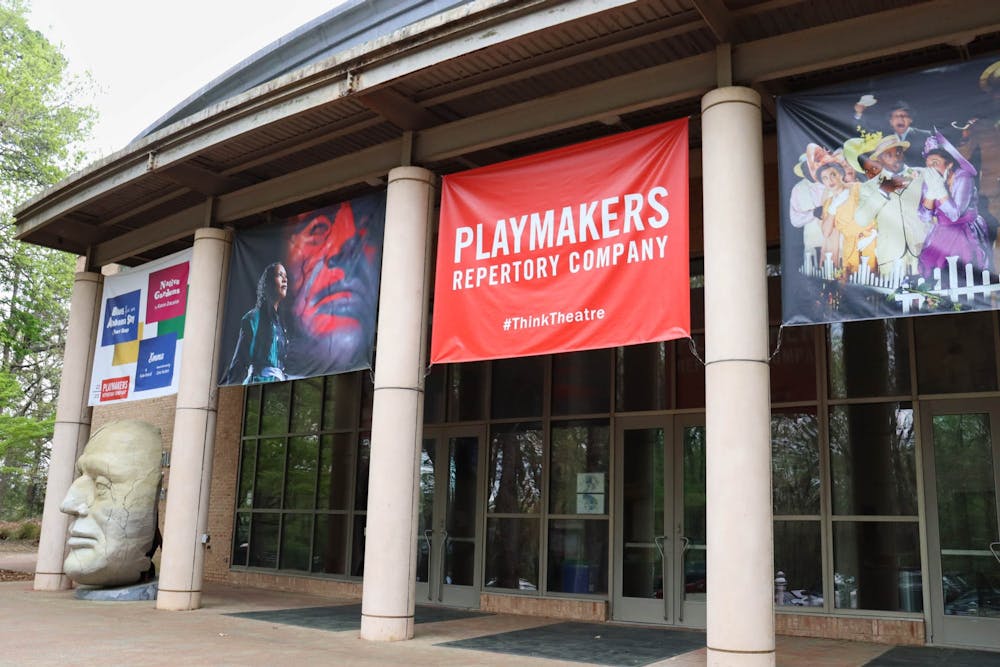Politics can be a difficult subject.
How can a playwright do justice to 250 years worth of policies in just two hours? How can an actor appeal to an audience who is already set in their own views? How can such a serious subject matter exist at the heart of a comedy?
As challenging as it is, I can confidently say that the PlayMakers Repertory Company's production of Heidi Schreck's “What The Constitution Means to Me” was a refreshingly successful take on politics.
The play centered on Heidi Schreck herself, played by Julia Gibson, as she reflected upon the U.S. Constitution. For the majority of the production, Gibson's role switched between Heidi's present-day self, in her mid-40s, and her 15-year-old self, as she competed to defend the Constitution at scholarship competitions.
Gibson's ability to address the same subject matter from two entirely different points of view was masterful. I was especially impressed by the nuance she gave to her portrayal of 15-year-old Heidi, whose views on and connections to politics — although differently grounded — were proven to be just as insightful and valuable as they were in her adulthood. The 15-year-old character also gave necessary moments of comedic relief, highlighting Gibson's comedic timing and ability to hold a commanding stage presence without taking herself too seriously.
“What the Constitution Means to Me,” though comedic, was far from an ordinary comedy. At the center of it all, it was a history lesson. As the production went on, Heidi's storytelling became increasingly dominated by her present-day perspective as the subject matter became more personal to her. With this transition, the tone of the play shifted away from comedy and began to posit serious takeaways for the audience.
One moment in particular that stood out to me was in Gibson's delivery of Heidi's recollection of her own abortion and the conversation around sexual violence that followed shortly after. The theater that had, just minutes ago, been alive with laughter, was silent with heavy contemplation and sympathy for Heidi and the women in the stories she was recounting.
The most powerful moment of the night came when Heidi made the competition moderator, played by Jeffrey Meanza, stand face-to-face with her and read the laws that had been used in defense of sexual and physical abuse against women. This moment sparked a conversation around gender and women's roles in decision making that persisted throughout the rest of the production.
By the end of the night, immigration, sexual violence, women's rights, violence against indigenous communities and LGBTQ+ rights had all been addressed. Each was nuanced and thoughtful, never rushed or thrown in.




